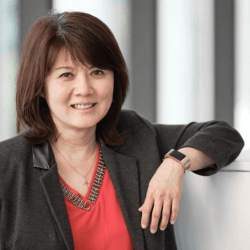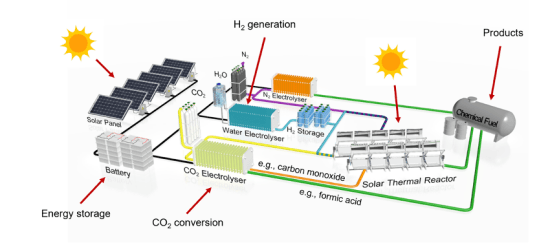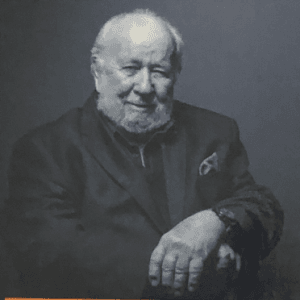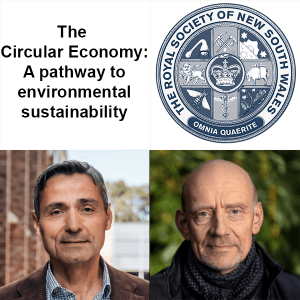
 “Harnessing solar energy through
“Harnessing solar energy through
catalysis to make chemicals and fuel”
Scientia Professor Rose Amal AC FRSN FAA FTSE
Scientia Professor of Engineering
School of Chemical Engineering
UNSW Sydney
Date: Wednesday, 7 December 2022, 6.30 pm AEDT
Venue: Gallery Room, State Library of NSW, Shakespeare Place, Sydney
Video presentation: YouTube presentation
All are welcome
Summary: Catalysis is the heart of chemistry – most chemical reactions need catalysts – so we want to make these reactions efficient and the process as sustainable as possible. Turning to the Sun as an energy source to activate catalysts is an obvious place to focus our investigations because it reduces our reliance on unsustainable fossil fuels. There are a number of means in utilising the sun’s energy to drive energetically demanding catalytic processes. We can use (i) electricity from photovoltaic transformation of sunlight to drive electro-catalytic reactions (electrocatalysis), (ii) heat of the sun to activate thermal catalyst (thermal catalysis), and (iii) light of the sun to excite electrons from valence band of a semiconductor to its conduction band (photocatalysis).
Here, I present our ongoing research in harnessing the full solar energy spectrum (from ultraviolet to infra-red) to induce or/and enhance catalytic CO2 and NOx reduction. Using solar energy to catalytically reduce CO2 and NOx has the potential to convert the waste CO2 and NOx into fuel and feedstocks, allowing the dual opportunity to store the intermittent renewable energy as well as closing the anthropogenic carbon and NOx cycle.

Fig. 1 Harnessing Solar Energy through electrocatalysis and photo-thermal catalysis to convert CO2, H2O, and NOx to Fuel and Chemical Feedstock.
Professor Rose Amal received her PhD in Chemical Engineering from the University of New South Wales (UNSW) in 1991. She is the leader of the Particles and Catalysis Research Group at UNSW Sydney, and Co-Director of ARC Training Centre for the Global Hydrogen Economy. Rose’s current research focuses on designing nanomaterials for solar and chemical energy conversion applications, and engineering systems for solar-induced processes, using the sun’s energy to generate clean fuel.
Rose’s numerous awards include the Freehills Award (2008), the NSW Science and Engineering Award for Emerging Research (2011), the ExxonMobil Award (2012) and being listed in ‘Australia’s Top 100 Most Influential Engineers’ (2012-2015). She is a Fellow of the Australian Academy of Technology and Engineering (FTSE), a Fellow of Australian Academy of Science (FAA), a Fellow of the Institution of Chemical Engineers (FIChemE), an Honorary Fellow of Engineers Australia (HonFIEAust), a Fellow of the Royal Australian Chemical Institute (FRACI) and a Fellow of the Royal Society NSW (FRSN).
She has received the nation’s top civilian honour – the Companion of the Order of Australia – as part of the 2018 Queen’s Birthday Honours for her eminent service to chemical engineering, particularly in the field of particle technology, through seminal contributions to photocatalysis, to education as a researcher and academic, and to women in science as a role model and mentor. Rose was named the 2019 NSW Scientist of the Year and awarded CHEMECA medal and James Cook Medal of the Royal Society of NSW in 2021.






